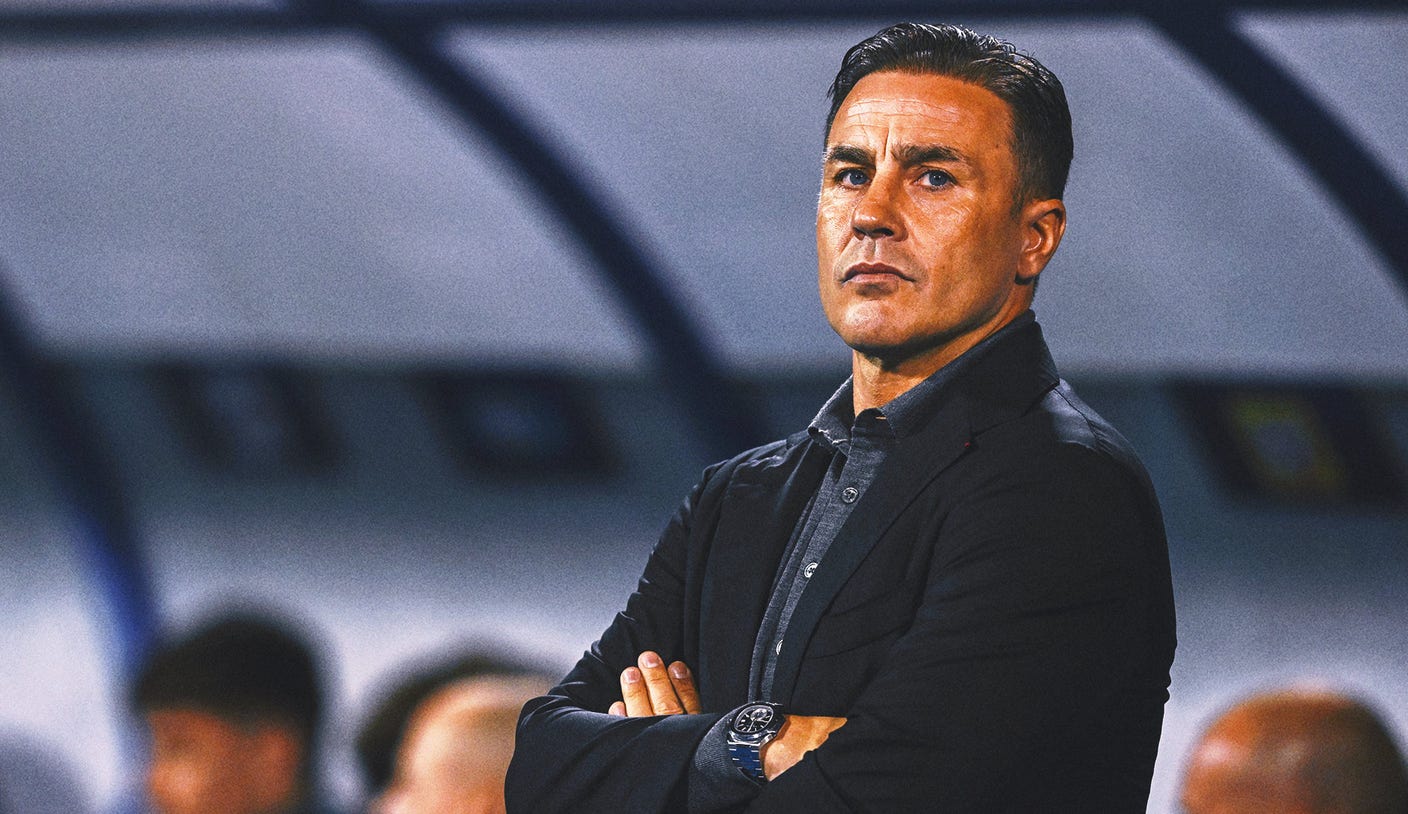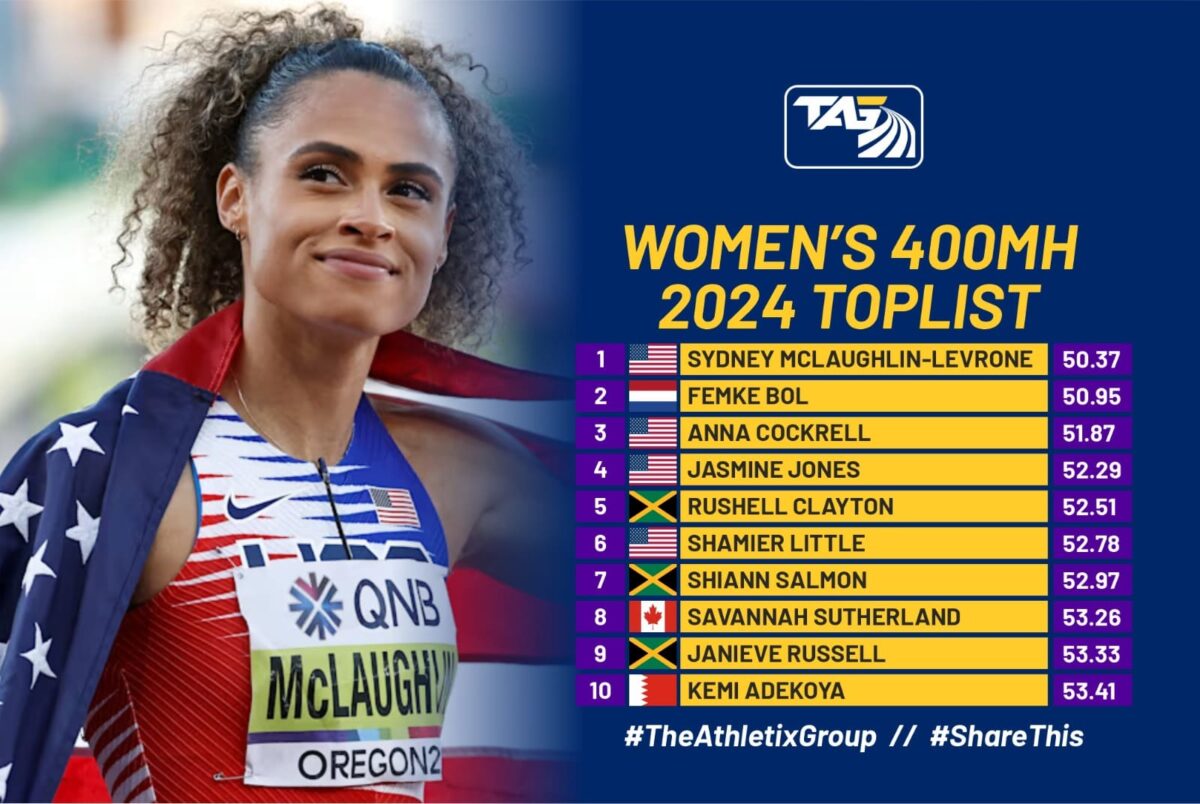
Big-name racing owners set to splash the cash at Tattersalls auction
October 7, 2025
Uzbekistan Hires Italy’s Fabio Cannavaro For Debut World Cup Appearance
October 7, 2025
When it's said that yearling sales are focused on the future, it usually refers to the young horses moving on to the next steps in their lives and careers.
On Tuesday at the Ocala Breeders' Sales Co. October Yearling Sale, though, the focus will be just as strong on the human element, with Hip 186, a first-crop Magic On Tap filly selling from the Bobby Jones Equine consignment on behalf of North Marion Equine.
The program was founded in 2018 by Bobby's wife Lori Jones, who is an animal science teacher at North Marion High School in Citra, Fla. The 10 to 12 students that are accepted annually into the program pick up a broad scope of Thoroughbred industry experience through in-class courses and hands-on learning at nearby Bobby Jones Equine.
The Jones family donated a pair of broodmares to launch the program, and students have worked directly with their mares and foals through pregnancy, foaling, sales prep, and the auction process at OBS.
Proceeds from the sale of Hip 186 will directly fund the North Marion Equine program, including supplies for the agriculture program, feed, supplies, vet care, field trip opportunities, and admission to leadership conferences. Since 2018, horses sold on behalf of North Marion Equine have grossed over $78,000 at the OBS October sale and the OBS Winter Mixed Sale.
The Paulick Report spoke with Bobby and Lori Jones ahead of the OBS October Sale to learn more about the program and the horse they and the students are bringing to the upcoming sale.
Question: Tell me about the North Marion Equine program. How did it get started?
Bobby Jones: My wife teaches the ag program, and we started an equine program there. Basically, a mare got donated, and I hustled around and got some stallion farms to donate a season and then got the mare pregnant, and then the next year, we foaled the baby and that started this thing off.
Four years ago, Lori got approached by the Marion County School Board and wanted to know if she would teach a high school-level equine program and that sounded interesting to her and to me, and she had a about five months to write four years of standards.
Lori Jones: I teach animal science and equine science.
Bobby Jones: At the end of the school year, she had the standards written. They looked at it over the summer and then gave her the thumbs up.
Hence, the equine program was was birthed. It's the only high school level equine program in the country, which is amazing to me that more schools haven't done this in "horse" states.
My farm is about five miles from the high school, so they, they come out to the farm on weekends and do some grooming. They have all participated during foaling season, and for the most part, I think all of them have gotten to witness a foal being born on non-school nights.
The kids come and they stay in our barn in a nice office, and they're there for the foaling. Then, we participate in two horse sales a year: the October OBS sale and the January breeding stock sale with short yearlings. For the past four years, I've had something in my barn that belonged to one of their broodmares, so we were able to sell a yearling or a short yearling for the program since 2018.
They're here at 5:30 in the morning (on sale days).
They're cleaning stalls.
We've got some of them showing, some of them are running our show cards, interacting with the clientele.
It's just been phenomenal, what they're learning, more importantly, but just the experience and interacting with the clients, it's really nice to watch.
It is a school day today (Monday, Oct. 6). Are the students able to get the rest of the day off from school to come out and work at the sale?
Lori Jones: It's excused as a student activity. It's intercurricular, so it's excused.
They'll be here Sunday, Monday, Tuesday, Wednesday, and our horse sells tomorrow. Our principal will be here tomorrow.
We had a school board member come by this morning. They're real supportive, because they know what the students are doing, and they're getting real world experiences every day that they're here.
How are the proceeds of the sales allocated for the North Marion Equine horses?
Lori Jones: It goes back to North Marion High School.
We have an equine account. A lot of things we do are donated, but we use it for expenses, different field trips and leadership opportunities for the kids, and we have about a 15-acre land lab at school where we show cattle, pigs, goats, and that's where our broodmares stay the majority of the year. All the proceeds go back and we use it for in-school curricular and activities.
What would you say is the average level of hands-on horse experience that these students come into the program with?
Do you get a lot of students who grew up in the Thoroughbred business, or is it a lot of people who have never touched a horse before?
Lori Jones: I would say 70 to 90 percent of them have never touched a horse before.
There's a couple of them that might show a little bit or work on a weekend on a mom and pop farm, but the majority of them show livestock like cattle and hogs in our FFA program.
So, this has given them an opportunity to branch out and learn a lot of new skills that they never were able to participate in before.
Bobby Jones: And she brings them to the farm on weekends. The ones that come to the farm, they get kind of a check mark, because coming to the sale is kind of their bonus. So, when they come out, you're talking about 10, 12, 15 kids, maybe sometimes 20, will show up. We're talking about teenagers now, on a Saturday morning at nine o'clock, and they're out here grooming broodmares and grooming babies, which is pretty impressive on its own.
Lori Jones: I teach about 75 to 100 kids a day, but two classes of animal science, three classes of equine science, and then we have about 21 students applying to this type of extracurricular part, and then I have 10 kids working the sale each day.
They have to apply to the program. They have to have good grades, good leadership skills.
It's a privilege, for them to be involved, and they know that.
Tell me about Hip 186. What does she bring to the table for a potential buyer?
Bobby Jones: She's a beautiful gray filly. She's actually getting a lot of play, not even factoring in that I've got a bunch of kids doing it, which kind of does tug on the heartstrings. This filly is probably going to go in with a reserve where she'd be selling live money at $10,000, but I've got a pretty good feeling she's going do better than that.
She's a lovely filly. She really did turn out well. We're grateful that we can even get one, and so far we've been pretty blessed that the kids haven't run into X-ray issues, haven't run into some of the sad things that happen, but that's also part of the learning, right?
We've got two mares in the program.
One got pregnant this year and one did not, so that's just part of what we deal with.
But, this filly did pass the X-ray, the little calisthenics that we've gotta do, so we never know until we get done X-raying if we've got a horse going to the sale or not.
Do the students get any hand in planning the matings for the mares in the program?
Lori Jones: Bobby's a huge part of that, but I do teach them about nicking and pedigrees in class. I might bring a list to school of a bunch of mares at our farm we're going to breed, and they can look at the nicking and try to have a hand in the mating of mares and stallions, but Bobby has a big part in talking to the stallion farms
When it comes to teaching the students the ropes of handling a horse and working within the Thoroughbred industry, what are the things that you find a typical student picks up the easiest, and what are some of the things that are the biggest challenges for them to wrap their arms around?
Bobby Jones: It's safety. It's animal behavior. So, they get to see pretty hands-on if they're out here working the sale, you're going see a lot of different animal behavior, because you've got them out of their element. They're not at the farm. They get to come and witness them at the farm, but here, you could have the quietest horse in the barn, but this is a different world here for that young horse. These animals are 16, 17, 18 months old. They're babies, so the kids are going to experience animal behavior
This is our second day here, so when we moved in on Saturday, the horses had no idea that that's what was fixing to happen.
We pride ourselves on safety, so it's really imprinting that into the students, how quickly a horse can hurt you, but also identifying the animal behavior before it turns into an accident, and they pick up really well.
Lori Jones: As far as at school, they learn about anatomy, physiology, nutrition, feeds, all the things you can teach with technology and with the textbook, but what they're experiencing here, there's no way they could learn in school or in a textbook or online, because they're physically here and they're experiencing all these things
Bobby Jones: I tell them, "We need equine accountants. We need equine attorneys. We need equine bookkeepers." So, there's a lot of things that they can go in different directions as far as the equine goes.

Do you have any success stories of graduates from the program who have gone on to notable positions within the Thoroughbred industry?
Lori Jones: I do have several students that are going to equestrian colleges, and they were showing horses on their own prior to this, several that are like world champions in reining and the Quarter Horse industry. But, I do have a student that came to see me yesterday and he did this as a ninth or tenth grader with us and fell in love with it.
He lives in Miami, His name is Sebastian Tundidor, and he's Triple SSS Equine, where he's been doing it on his own. He just came back from Keeneland, and he's fixing to go to New York for the sale.
I'm really proud of him. He's really kind of a city kid, but he's a country kid at heart, and he's learned a lot in the industry himself.
It wasn't from anything we did, but the first horse he ever did sell, we sold him as a weanling. Bobby went in half with him and helped him with that first sale of his own horse, but now he's doing broodmares, yearlings, I think he has some at the racetrack. His family's gotten involved. He really fell in love with it.

What else would you like readers to know about the program?
Lori Jones: Me and my husband, this is our passion. He's been doing this 40 years, and out of everything he's ever done, this is the most gratifying thing, as far as working with these students. I get to do it every day as a teacher, but him getting involved, it's just very gratifying, and the kids are really appreciative of everything he does. They're a big part of it, but he is one of the biggest components.
It wouldn't be here at all if it didn't start with him.
This story was originally reported by Paulick Report on Oct 6, 2025, where it first appeared in the News section. Add Paulick Report as a Preferred Source by clicking here.







